- Work with us
- Repairs
- Contact
- +34 972 640 620
Angel Mir products
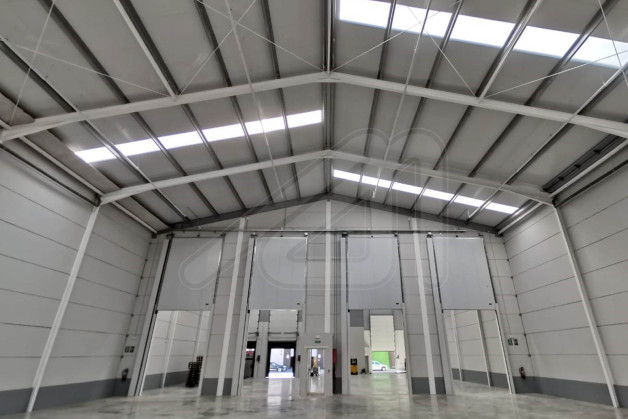
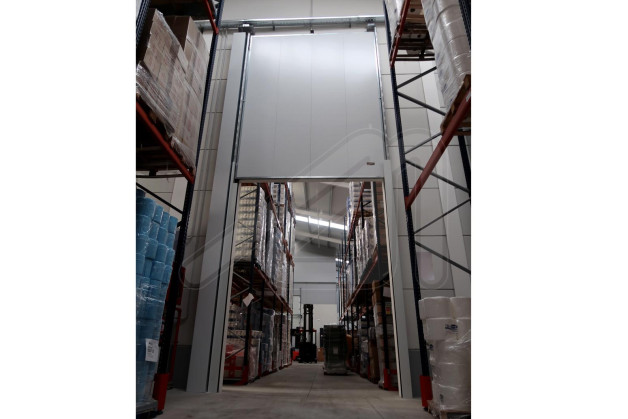
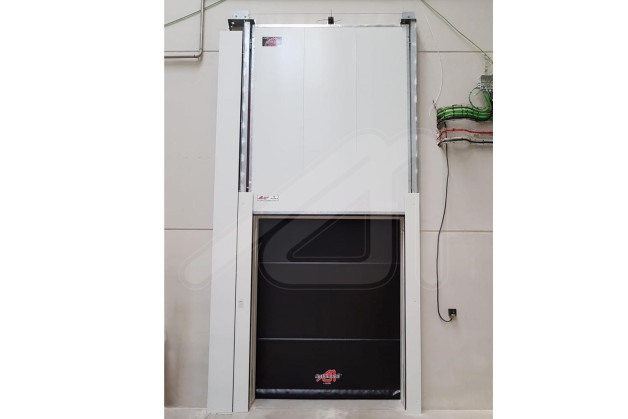
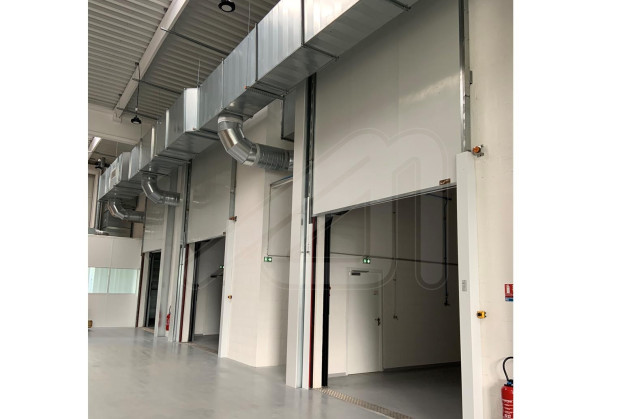
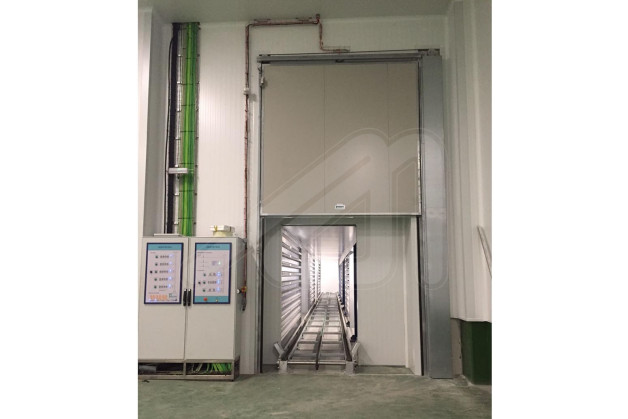
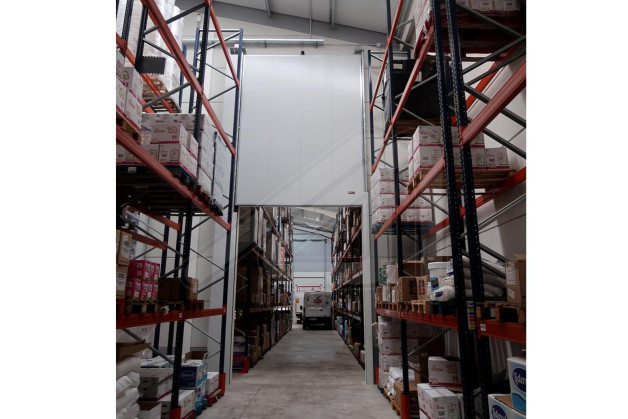
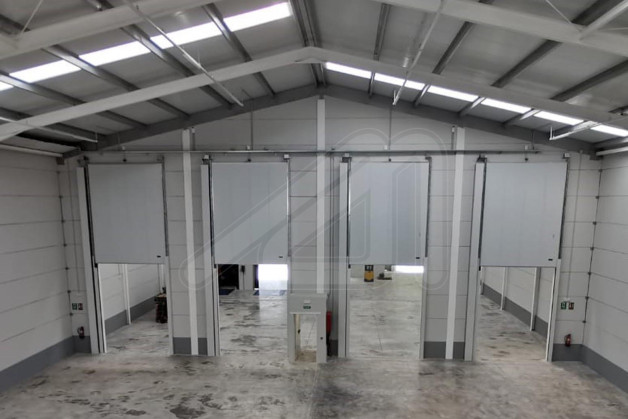
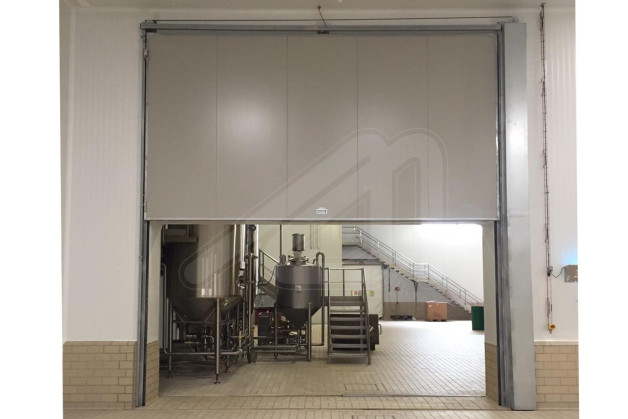
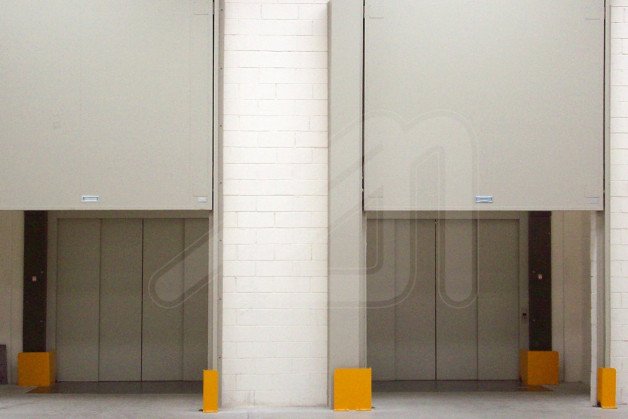

Guillotine fire door EV-MIR
EV-Mir is the guillotine fire-resistant door manufactured in a single sheet, with fire resistance up to Ei90, and with three telescopic sheets, up to Ei120, if there is not enough space available.
It is done with a single sheet made of joined panels, assembled with gaskets that are resistant not only mechanically but also to fire. Each panel, of an approximate width of 1.200 mm, consists of two sheets of galvanized steel and a set of thermal materials that prevent that gases or flames getting through. This sheet is topped with a closing profile around the whole perimeter.
The fire-resistant guillotine door remains usually open and, when it receives a signal from the fire detection system, descends by gravity to a rate controlled by respective radial absorbers. It closes then to the ground without hitting against it, thanks to shock absorbers. They also have appropriate safety equipment to prevent falls in case that an element of the suspension breaks.
The guides of the door can be installed on the ceiling or welded to strong metal structures. The support elements must have, at least, the same fire resistance value as the door and must be strong enough to hold the weight of the door and its expansions.
Optionally, doors with a height above 2,400 mm can incorporate a pedestrian access door and be made of stainless steel or galvanized steel.
Request budget for
CATALOGUES
- angel-mir-catalogue-genera-fr
- es-Puertas-cortafuegos-AM
- en-Fire-resistant-doors-AM
- fr-Portes-coupe-feu-AM
 en
en  es
es ca
ca fr
fr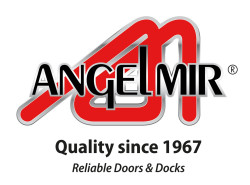
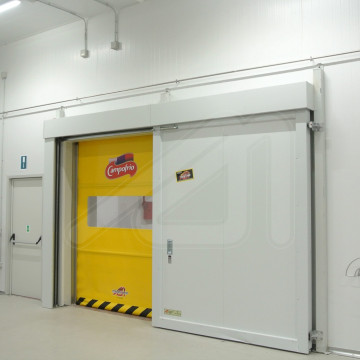
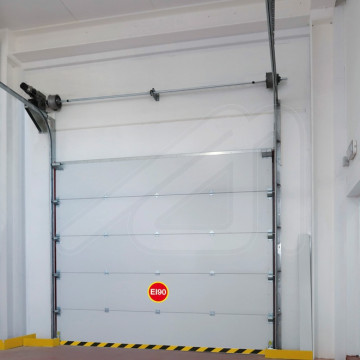
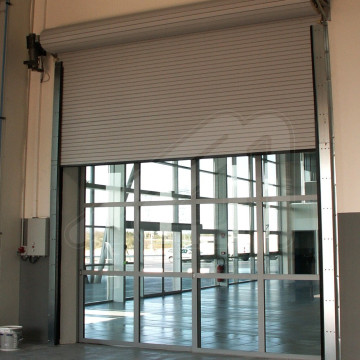
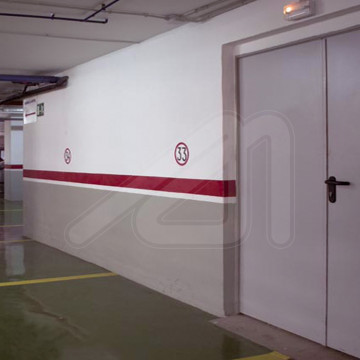
 Àngel Mir
Àngel Mir